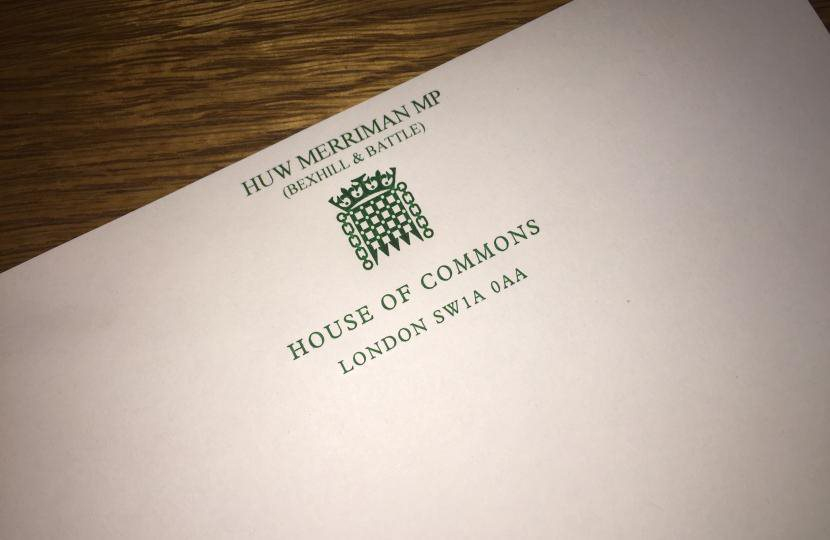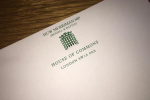
Why has the Illegal Migration Act been introduced?
- In 2022, 45,755 people crossed the channel illegally in small boats, compared to 299 in 2018
- Between 2018 and 2022, there were 76,134 asylum applications from people who arrived in small boats. This accounted for 28 per cent of all asylum applications during that period.
- Stopping small boat crossings was one of the five promises the Prime Minister made to the public in January.
- The Illegal Migration Act seeks to create a system whereby anyone arriving illegally in the UK will be promptly removed to their home country, or to a safe third country to have any asylum claim processed.
- Measures included in the Bill seek to:
- Deter illegal entry to the UK
- Break the business model of people smugglers and save lives
- Promptly remove those with no legal right to remain in the UK
- Make provision for setting an annual cap on the number of people to be admitted to the UK for resettlement through safe and legal asylum routes.
What are the main provisions included in the Illegal Migration Act?
New duties to arrange removal and declare asylum claims automatically void
- The Illegal Migration Act will create two new legal duties for the Home Secretary.
- The first is to make arrangements for the removal of people who enter the UK if they meet four conditions:
- That the person has come to the UK illegally
- That the person entered or arrived “on or after 7 March 2023 (the date that the Bill was introduced)
- That the person “did not come directly to the UK from a country in which the person’s life and liberty were threatened by reason of their race, religion, nationality, membership of a particular social group or political opinion”
- That the person requires leave to enter or remain in the UK but does not have it.
- The duty would apply regardless of whether the person has submitted a legal claim challenging their removal, including an application for judicial review.
- If someone meets those conditions, the Home Secretary will have a second duty: to refuse to process any asylum claim they make, along with any claim that removal to their country of origin would be a break of their human rights.
Migrants can be detained under new powers and removed to countries considered safe
- The Act provides new powers to detain people who are covered, or potentially covered, by the arrangements for removal duty.
- During the first 28 days of detention, people detained under these bespoke powers would not be able to apply to the Immigration Tribunal for immigration bail or apply for judicial review.
- Asylum seekers would normally be removed to their home country if that country is listed as safe. The list of safe countries would consist of the 27 EU countries plus Albania, Iceland, Norway, Liechtenstein and Switzerland.
- Asylum seekers from other countries would not be removed to their home country.
- They could only be removed to certain ‘third countries’, ones they are not a citizen of. There is a separate list of third countries considered safe, including Rwanda.
People with modern slavery cases would be disqualified from protections against removal
- If someone is identified as a potential victim of modern slavery, the Government will ensure they are safely returned home from where they were removed against their will, or to another safe country.
- Removal from the UK may only be deferred where a person is co-operating with law enforcement agencies in an investigation into the circumstances of their trafficking.
- This will mean that genuine victims of human trafficking are protected, while preventing people from abusing the UK's modern slavery laws to thwart their removal from the UK.
People who enter illegally would be unable to get citizenship for themselves or their children
- The Act will restrict people who have ever been subject to the arrangements for removal duty from being granted immigration status or British citizenship in future.
- This is unless the Home Secretary decides to exempt them to comply with the UK’s international treaty obligations or, sometimes, in “compelling circumstances”.
- The restrictions on obtaining citizenship extend to their UK-born children.
New powers to provide accommodation for unaccompanied children
- The Home Office would be given powers to provide or arrange for the provision of accommodation and other support to unaccompanied children who are within the scope of the duty to remove, and to transfer a child from Home Office accommodation into local authority care (and vice versa).
- The provisions apply to England but there is a power to extended them to the other parts of the UK through regulations.
Speeding up the removal of illegal migrants: Domestic court injunctions
- Government new clause 22 would restrict the powers of the domestic courts.
- To speed up the removal of people who have entered the UK illegally, UK domestic courts will be unable to apply any interim measures to stop someone being removed if they bring forward a legal challenge.
- Instead, challenges would be heard remotely after the person concerned had been removed.
- This will ensure that someone would only be able to apply for a domestic injunction to prevent their removal if they were to face “serious and irreversible harm” in the country they were due to be removed to.
Speeding up the removal of illegal migrants: European Court of Human Rights
- Government new clause 26 would provide that interim measures of the European Court of Human Rights (ECHR) would not affect the duty on the Home Secretary to remove those who have entered the UK illegally.
- Currently, the Court in Strasbourg may indicate interim measures under ‘Rule 39’ to any member state. A recent example of interim measures using Rule 39 was the blocking of a removal flight to Rwanda in June 2022.
- The Government is continuing to hold discussions with the Court in regard to Rule 39 and its application.
Provision of safe and legal routes of entry to the UK
- Government New Clause 8 commits the Government to consult local authorities within three months of the Bill becoming law to understand their capacity to support people coming to the UK through safe and legal routes.
- A report will also be published detailing existing, and any proposed additional safe and legal routes, within six months of the Bill becoming law.
Search and seizure of mobile phones
- Government new clause 23 would give immigration officers powers to search people for mobile phones and other electronic devices.
- This is designed to help them assess whether someone has the right to be in the UK.
Methods of age assessment
- Government new clause 25 would increase protections around the safeguarding risk caused by adults pretending to be children.
- New regulations would be introduced that will see age-disputed people treated as an adult if they refuse to undergo a scientific age assessment.
See Also



